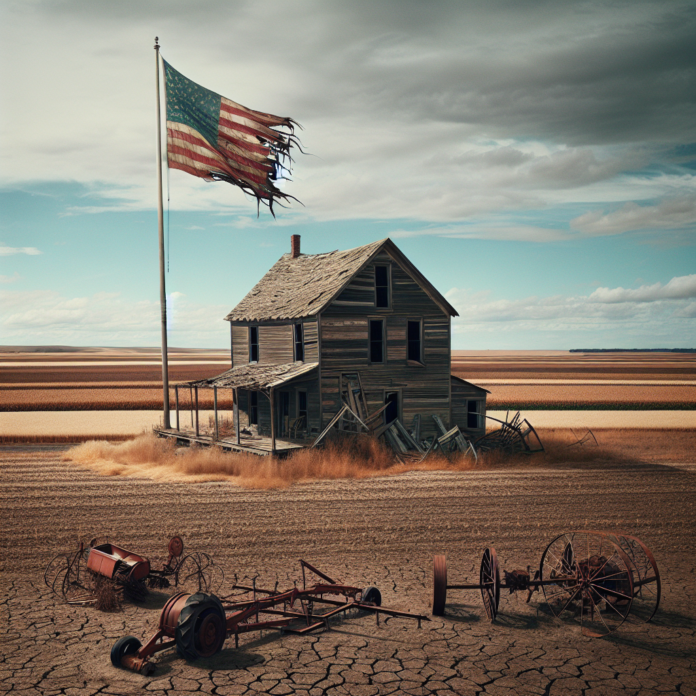Time-Worn Terrors: The Negative Impact of US Traditionalism
In an era marked by rapid change and progress, American traditionalism stands as a relic of the past, rooted in conventions that often hinder forward momentum. While tradition can offer a comforting sense of continuity, it can also cling to outdated, and sometimes harmful, notions that obscure the path to a more equitable and inclusive future. The tenacity of these customs is evident across various facets of American life—from politics to religion—and unfurls in ways that resist necessary evolution.
A case in point is the political landscape in which traditionalism often translates into a clinging to historical precedents that no longer serve the modern populace. With the ever-growing diversity and complexity of the United States, a rigid adherence to the past can prevent the nation from adopting policies that reflect the current realities. This adherence can manifest in resistance to reforms that aim to rectify socio-economic inequalities, gender disparities, and racial injustices—issues that were starkly different in the time of the Founding Fathers.
History is replete with examples of how traditionalism has either slowed or directed the wrong course for societal progress. The struggle for civil rights serves as a poignant reminder. For centuries, American society resisted racial integration, justified by a perverse interpretation of tradition. Only through progressive advocacy and relentless struggle was the arc of history eventually bent toward justice. Similarly, women’s suffrage, labor rights, and LGBTQ+ rights were fiercely opposed by traditionalists who wielded their perceived inherent values against inevitable change.
The usurpation of traditionalist ideologies in religion illustrates another arena where progress faces vehement opposition. The Catholic Church, in particular, presents a dichotomy between the conservative old guard—attached to the norms exemplified in practices like the Latin Mass—and the progressive reforms championed by Pope Francis. The Latin Mass, with its exclusive ritualism and linguistic barriers, symbolizes a broader reluctance within Catholic Conservatism to embrace modernization. The formality and inflexibility associated with these traditional practices underscore a resistance to the inclusive and compassionate vision articulated by present-day reformist voices like Pope Francis.
Pope Francis, with his calls for compassion, inclusivity, and a focus on the poor and marginalized, has attempted to steer the Church away from exclusionary practices that have long permeated its history. His emphasis on addressing climate change, advocating for economic justice, and recognizing the dignity and rights of all individuals epitomizes a significant shift away from the rigid interpretations of doctrine that many traditionalists continue to uphold. Such progressivism, invigorated by the ethos of adaptation and openness, counters the exclusionary and often elitist tendencies inherent in traditionalist currents.
Additionally, traditional Catholicism often remains entangled with politics, influencing policies that can obstruct societal progress. The blending of religious doctrines with civic duties can result in policy decisions that reflect religious orthodoxy rather than secular justice or empirically grounded guidance. Progressive ideologies contend that faith should inspire love and equality, driving societal advancements in healthcare, education, and welfare—sectors where religiosity must uplift rather than restrain.
The nostalgic gaze of traditionalism also tones down the vibrancy and resilience of American culture, which thrives on diversity and innovation. The nation’s cultural tapestry is woven with threads from myriad ethnicities and backgrounds, each contributing unique perspectives. Attempts to preserve an archaic, monolithic set of values threaten the very core of this diversity, creating friction at the intersection of tradition and innovation.
In exploring the economic sphere, tradition sometimes resists the evolution toward more digitally oriented and environmentally sustainable practices. Traditional industries, often embedded with historical significance, can prioritize short-term gains over sustainable and innovative approaches that will drive future prosperity. Green energy, a critical sector for combating climate change, often encounters opposition rooted in the preservation of coal or oil legacy industries.
Ultimately, the promise of progress calls upon societies to strike a delicate balance, honoring the past but never becoming ensnared by it. Tradition, when untethered from critical evolution, risks perpetuating inequality, Division, and stagnation. As history unfolds, compelling illustrations of traditionalism’s shortcomings showcase the necessity of embracing progressive values that champion inclusivity, adaptability, and a future-focused perspective.
In pursuit of a more just and equitable society, the challenge remains: to navigate the complex waters between respecting heritage and dismantling the barriers it can impose. Progressive values offer a beacon, illustrating that change, though sometimes discomforting, is often the harbinger of a better tomorrow. Through this lens, American traditionalism reveals itself not as a bastion of virtue, but more frequently, as an impediment, clinging nostalgically to time-worn terrors rather than boldly forging paths of possibility.
